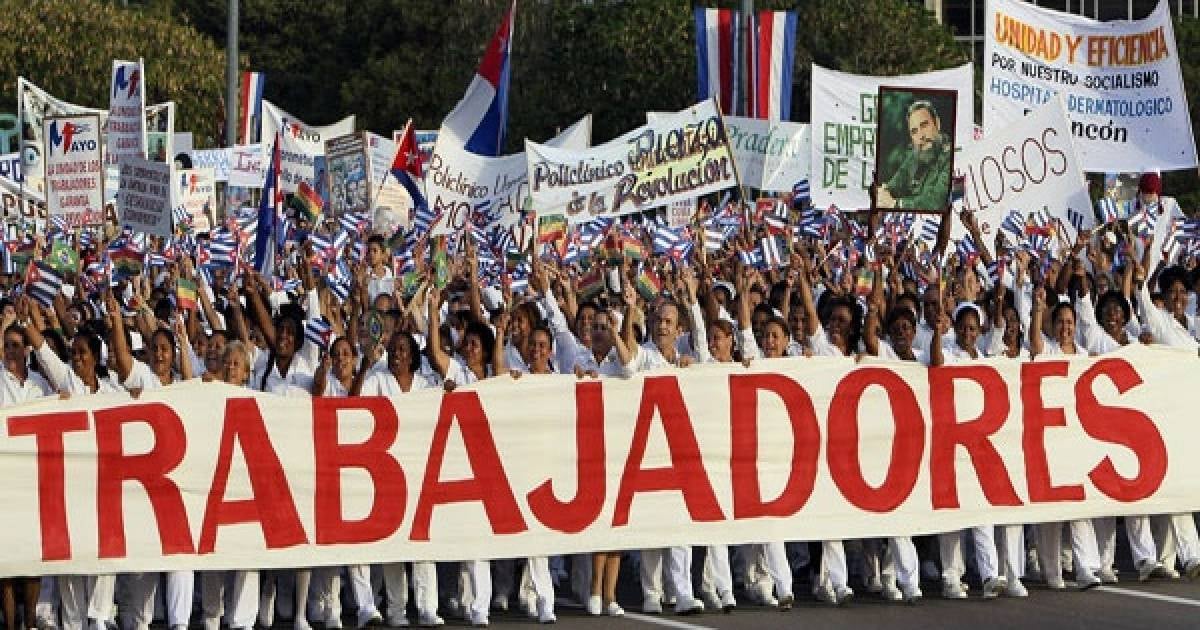
Related videos:
In the context of the changes prompted by the 2019 Constitution, the Cuban regime is working on updating the Labor Code, which has been in effect since 2013, to align it with the country's economic and social transformations, while the systemic crisis continues to worsen each day.
This proposal will be presented at the next regular session of the National Assembly of the People's Power, as reported by Yiseilis Ferrer Mariño, legal and international relations director of the Ministry of Labor and Social Security (MTSS), in statements to the state media Cubadebate.
The new Labor Code will include adjustments to ensure greater equity and inclusion in labor relations, addressing aspects that range from work in the non-state sector to modalities such as telecommuting and remote work, which gained prominence following the Covid-19 pandemic.
Among the most notable changes is the introduction of the term "working person," replacing "worker," with the aim of promoting a more inclusive approach that takes into account gender diversity, sexual orientation, race, and other personal characteristics.
The regulations will also govern the rights and benefits of vulnerable sectors such as youth, women, people with disabilities, and those who provide care at home, offering options like telecommuting and leave agreements made with unions.
Extended guarantees and rights
According to the directive, the project ensures the protection of fundamental labor rights, such as vacation time, hiring practices, social security, and the prohibition of child labor. The minimum working age will remain at 18 years.
Furthermore, terms such as "interruption" and "availability" will be eliminated and adjusted to reflect the current labor reality, and the possibility of judicially resolving conflicts arising from disciplinary measures will be included, in alignment with the Code of Processes.
Another aspect will be the expansion of employers' powers to assess the job competencies of candidates, taking into account not only technical qualifications but also relevant skills and values for the position.
A comprehensive and protective approach
The Code proposes new provisions regarding collective agreements, occupational safety and health, as well as the evaluation of teachers and material responsibility. Likewise, Yiseilis Ferrer Mariño stated that work is also being done on a new social security law that will complement this regulation, with particular emphasis on the rights of working mothers.
He emphasized that this project is part of the overarching program for Human Development, Equity, and Social Justice, and is also linked to initiatives such as the "Advancement of Women" program and the "Decent Work" program.
Frequently Asked Questions about the New Labor Code in Cuba
Why is the Labor Code in Cuba being updated?
Cuba's Labor Code is being updated to align with the country's economic and social transformations, following the changes driven by the 2019 Constitution. The aim is to ensure greater equity and inclusion in labor relations, addressing issues such as telecommuting and work in the non-state sector.
What notable changes does the new Cuban Labor Code include?
The new Cuban Labor Code introduces the term "working person" to promote an inclusive approach and will regulate the rights of vulnerable groups such as youth, women, and individuals with disabilities. It also proposes new provisions regarding collective agreements and job security, and obsolete terms like "interruption" and "availability" will be removed.
How will the new Labor Code affect the non-state sector in Cuba?
The new Labor Code will address issues related to the non-state sector, such as telecommuting and the inclusion of family members in self-employment. It aims to regulate hiring practices and labor rights within this sector, in accordance with the new regulations for micro, small, and medium enterprises (mipymes) and the decrees regarding social security.
What measures are being taken to combat child labor in Cuba?
Despite legal prohibitions, child labor remains a reality in Cuba, particularly due to the economic crisis that forces many minors to work. The new Labor Code reaffirms the ban on child labor and establishes a minimum working age of 18, aiming to provide special protection for young people.
Filed under: